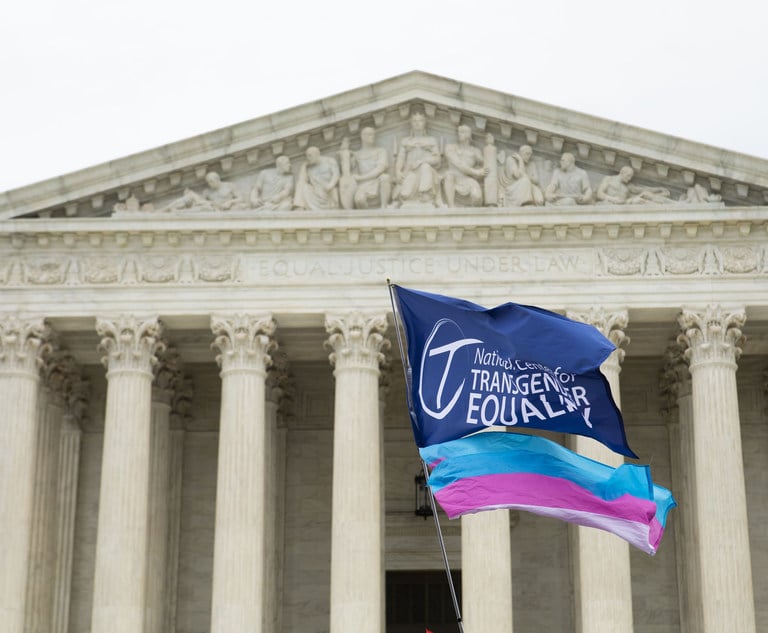 NLRB headquarters in Washington. Credit: Diego M. Radzinschi / ALM
NLRB headquarters in Washington. Credit: Diego M. Radzinschi / ALMTribal-Owned Casino Can't Escape Reach of Federal Labor Law, Ninth Circuit Says
The three-judge panel concluded the California-based casino was subject to the National Labor Relations Act in a dispute that tested tribal sovereignty.
April 26, 2018 at 05:36 PM
3 minute read
A tribal-owned casino in California violated federal labor law by meddling with a union's recruitment activity, a federal appeals court said Thursday in a dispute testing Native American sovereignty and the reach of the National Labor Relations Act.
The U.S. Court of Appeals for the Ninth Circuit upheld a National Labor Relations Board decision that found San Diego County-based Casino Pauma engaged in unfair labor practices when it halted union organizing in the front of its property. The three-judge panel concluded the casino was subject to the National Labor Relations Act, or NLRA, and that the federal board has the power to enforce it.
“Although the NLRA is ambiguous as to its application to tribal employers, the board's determination that such employers are covered by the act is a 'reasonably defensible' interpretation of the NLRA,” Judge Marsha Berzon wrote for the unanimous panel.
Casino Pauma, pointing to its status as a tribally owned business on tribal land, argued the board misinterpreted the NLRA. The Pauma Band of Mission Indians, which owns the casino, employs about 462 people, five of whom are members of the tribe. Collective bargaining can differ for tribal casinos, but the panel said federal laws apply.
The casino's attorneys previously said the board's decision represented a “seismic shift” in how it operates under federal law. Cheryl Ann Williams and Kevin Cochrane of William & Cochrane, who represented the tribe, were not immediately reached for comment Thursday. Williams argued for Casino Pauma in November.
Four federally recognized tribes in Montana and Washington state filed a friend-of-the-court brief backing Casino Pauma. “As government employers they have a powerful interest in maintaining authority to govern their own communities and those who work for their governments,” according to the brief, filed by Sonosky, Chambers, Sachse, Endreson & Perry.
The Casino Pauma dispute arose when casino employees distributed union leaflets to customers at the casino's front entrance. Labor law protects union organizing in work or guest areas. Employees were disciplined for the activity, the complaint against the casino states.
Unite Here International Union, which began organizing at Casino Pauma in 2013, applauded the court's decision.
“The NLRA provides essential workplace protections that would leave tribal gaming enterprises critically vulnerable if the tribal-owned enterprise lobby had succeeded in stripping them away,” the union statement said. “Unite Here is thrilled that the courts have upheld the rights of all American workers and will continue organizing and winning for all hospitality workers, no matter who their employer is.”
Get employment law news and commentary straight to your in-box with Labor of Law, a new Law.com briefing. Learn more and sign up here.
This content has been archived. It is available through our partners, LexisNexis® and Bloomberg Law.
To view this content, please continue to their sites.
Not a Lexis Subscriber?
Subscribe Now
Not a Bloomberg Law Subscriber?
Subscribe Now
NOT FOR REPRINT
© 2024 ALM Global, LLC, All Rights Reserved. Request academic re-use from www.copyright.com. All other uses, submit a request to [email protected]. For more information visit Asset & Logo Licensing.
You Might Like
View All
New Class Action Points to Fears Over Privacy, Abortions and Fertility

Deception or Coercion? California Supreme Court Grants Review in Jailhouse Confession Case
5 minute read
Court rejects request to sideline San Jose State volleyball player on grounds she’s transgender
4 minute readTrending Stories
- 1Judicial Ethics Opinion 24-68
- 2Friday Newspaper
- 3Judge Denies Sean Combs Third Bail Bid, Citing Community Safety
- 4Republican FTC Commissioner: 'The Time for Rulemaking by the Biden-Harris FTC Is Over'
- 5NY Appellate Panel Cites Student's Disciplinary History While Sending Negligence Claim Against School District to Trial
Who Got The Work
Michael G. Bongiorno, Andrew Scott Dulberg and Elizabeth E. Driscoll from Wilmer Cutler Pickering Hale and Dorr have stepped in to represent Symbotic Inc., an A.I.-enabled technology platform that focuses on increasing supply chain efficiency, and other defendants in a pending shareholder derivative lawsuit. The case, filed Oct. 2 in Massachusetts District Court by the Brown Law Firm on behalf of Stephen Austen, accuses certain officers and directors of misleading investors in regard to Symbotic's potential for margin growth by failing to disclose that the company was not equipped to timely deploy its systems or manage expenses through project delays. The case, assigned to U.S. District Judge Nathaniel M. Gorton, is 1:24-cv-12522, Austen v. Cohen et al.
Who Got The Work
Edmund Polubinski and Marie Killmond of Davis Polk & Wardwell have entered appearances for data platform software development company MongoDB and other defendants in a pending shareholder derivative lawsuit. The action, filed Oct. 7 in New York Southern District Court by the Brown Law Firm, accuses the company's directors and/or officers of falsely expressing confidence in the company’s restructuring of its sales incentive plan and downplaying the severity of decreases in its upfront commitments. The case is 1:24-cv-07594, Roy v. Ittycheria et al.
Who Got The Work
Amy O. Bruchs and Kurt F. Ellison of Michael Best & Friedrich have entered appearances for Epic Systems Corp. in a pending employment discrimination lawsuit. The suit was filed Sept. 7 in Wisconsin Western District Court by Levine Eisberner LLC and Siri & Glimstad on behalf of a project manager who claims that he was wrongfully terminated after applying for a religious exemption to the defendant's COVID-19 vaccine mandate. The case, assigned to U.S. Magistrate Judge Anita Marie Boor, is 3:24-cv-00630, Secker, Nathan v. Epic Systems Corporation.
Who Got The Work
David X. Sullivan, Thomas J. Finn and Gregory A. Hall from McCarter & English have entered appearances for Sunrun Installation Services in a pending civil rights lawsuit. The complaint was filed Sept. 4 in Connecticut District Court by attorney Robert M. Berke on behalf of former employee George Edward Steins, who was arrested and charged with employing an unregistered home improvement salesperson. The complaint alleges that had Sunrun informed the Connecticut Department of Consumer Protection that the plaintiff's employment had ended in 2017 and that he no longer held Sunrun's home improvement contractor license, he would not have been hit with charges, which were dismissed in May 2024. The case, assigned to U.S. District Judge Jeffrey A. Meyer, is 3:24-cv-01423, Steins v. Sunrun, Inc. et al.
Who Got The Work
Greenberg Traurig shareholder Joshua L. Raskin has entered an appearance for boohoo.com UK Ltd. in a pending patent infringement lawsuit. The suit, filed Sept. 3 in Texas Eastern District Court by Rozier Hardt McDonough on behalf of Alto Dynamics, asserts five patents related to an online shopping platform. The case, assigned to U.S. District Judge Rodney Gilstrap, is 2:24-cv-00719, Alto Dynamics, LLC v. boohoo.com UK Limited.
Featured Firms
Law Offices of Gary Martin Hays & Associates, P.C.
(470) 294-1674
Law Offices of Mark E. Salomone
(857) 444-6468
Smith & Hassler
(713) 739-1250







